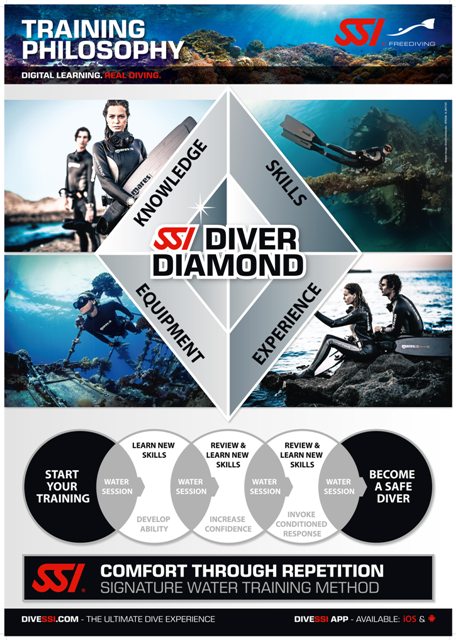Dive into Adventure: A Beginner's Guide to Scuba Diving and Freediving
- Overland Underwater Training
- Oct 16, 2024
- 2 min read
Welcome to our first blog post! Whether you're a seasoned diver or just starting out, the underwater world offers endless excitement and discovery. Today, we'll explore the basics of scuba diving and freediving, focusing on training and safety to ensure your adventures are both thrilling and secure.
Scuba Diving: Exploring the Depths
Training
1. Get Certified: Before you dive in, it's crucial to get certified by a reputable agency like SSI or PADI amongst others. Certification courses teach you essential skills, from equipment handling to underwater navigation.
2. Practice Regularly: Like any skill, scuba diving improves with practice. Regular dives help you become more comfortable and proficient underwater whether that is in the pool, lake or sea each time you dive you learn something.
Safety
1. Never Dive Alone: Always dive with a buddy. This not only enhances safety but also makes the experience more enjoyable.
2. Plan Your Dive: Always plan your dive and dive your plan. Consider factors like depth, duration, and sea conditions.
3. Conduct Pre-Dive Checks: Ensure all your equipment is in good working condition before every dive. Check your air supply, dive computer, and other gear¹.
4. Monitor Your Air Supply: Keep an eye on your air consumption and ascend with a sufficient reserve to ensure a safe return to the surface.
Freediving: Embracing the Freedom
Training
1. Learn Proper Techniques: Freediving requires mastering breath-holding and relaxation techniques. Consider taking a course from a certified freediving organisation like SSI or AIDA amongst others.
2. Dry Training: Practice breath-holding exercises on land to build your lung capacity and comfort with holding your breath.
Safety
1. Never Dive Alone: Just like scuba diving, always have a buddy or a trained safety diver present.
2. Equalize Your Ears: Proper equalization techniques are essential to prevent ear and sinus injuries as you descend.
3. Know Your Limits: Always dive within your training, experience, and comfort level. Avoid pushing yourself beyond your capabilities.
General Tips for Both Scuba Diving and Freediving
1. Stay Hydrated and Rested: Dehydration and fatigue can impair your performance and safety underwater.
2. Respect Marine Life: Always observe marine life from a distance and avoid touching or disturbing the underwater environment.
3. Stay Informed: Keep up with the latest safety guidelines and diving techniques to ensure you're always prepared for your next adventure.
Diving is an incredible way to explore the underwater world, but safety should always be your top priority. By following these training and safety tips, you can enjoy your dives with confidence and peace of mind.
Happy diving! 🌊🐠



















留言